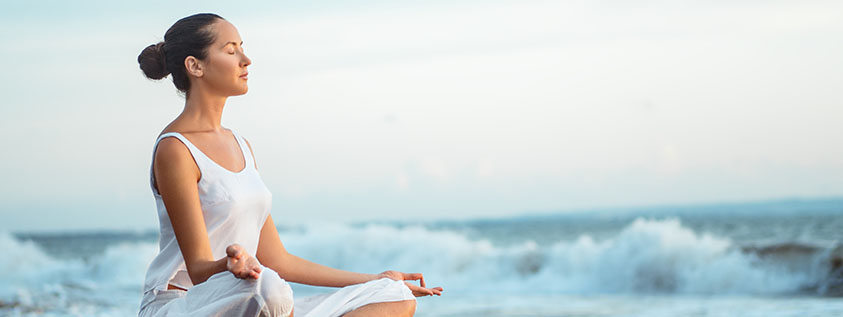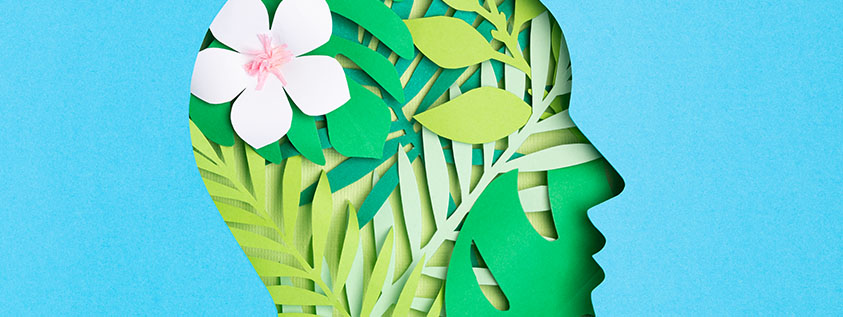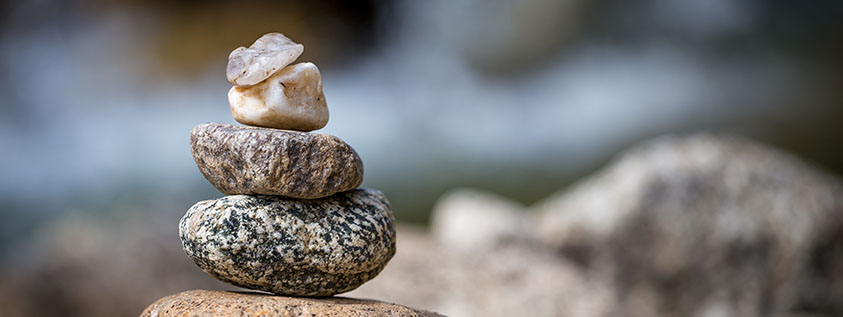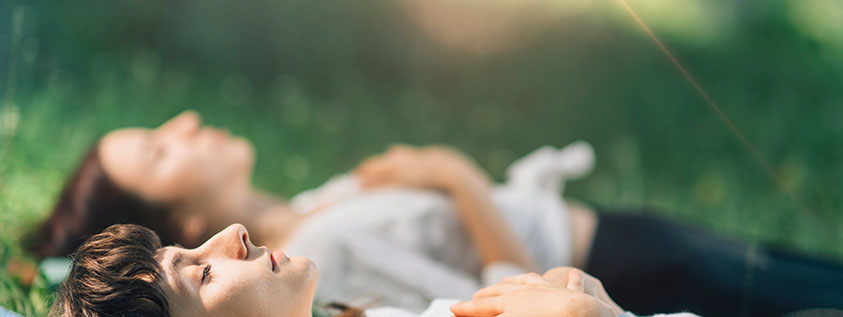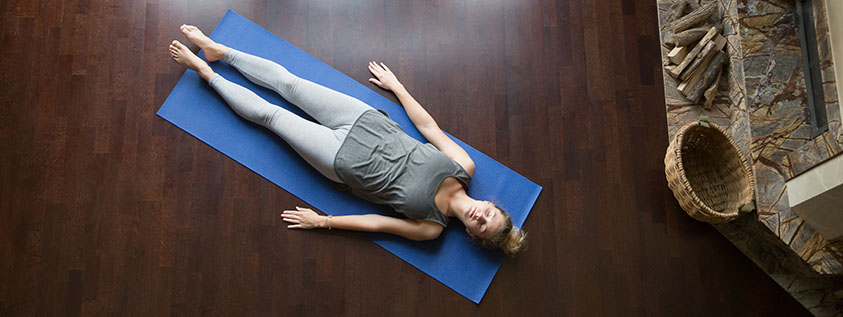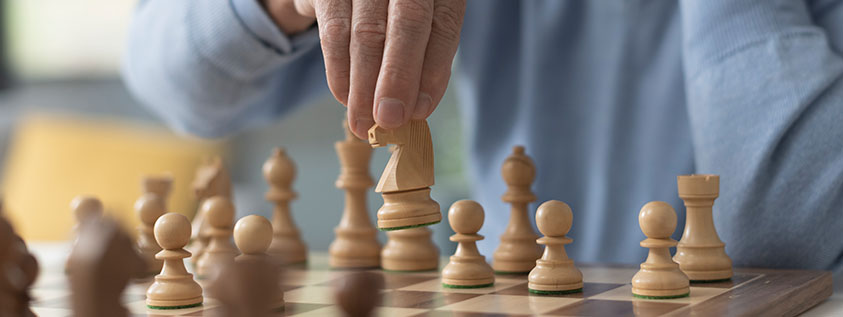When you are stressed, want to sleep, or want to relax, try using relaxation techniques. Little by little you can relax by using mind and body exercises, meditation, yoga, or deep breathing. In this article, we will show you some of the best relaxation techniques that will help you start this journey into total calmness.
In this Article:
What are relaxation techniques?
A relaxation technique is a way to relax your mind and body. By using relaxation methods, you lower the amount of stress and anxiety in your everyday life or the moment. There are many different relaxation techniques, and they can include any activity that will help you relax or de-stress.
How do relaxation techniques work?
Relaxation techniques use your brain to change how your body feels. The idea is to focus on something calm and repetitive, like breathing, which eventually slows down the heart rate, lowers blood pressure, and makes your muscles less tense. Generally, people use relaxation practices to help them relax, but also to improve their mental health and physical health.
Physical health benefits
In addition to stress relief, relaxation techniques can also help those suffering from insomnia or headaches. This means they promote a healthier lifestyle by helping you sleep better and relax the muscles in your body.
Reduce muscle tension
With relaxation techniques, you can reduce muscle tension. Muscle tightness is a condition in which your muscles stay partially contracted for an extended time, at first making them feel stiff and achy and eventually causing chronic pain. Muscle tension can be induced by stress, physical activity, or ordinary movement. If you’ve ever experienced any of the following common symptoms, you’ve probably dealt with muscular tension:
- Shoulder pain
- Tension in your jaw
- Back pain
- Stiffness in your neck
Muscular tension is typically felt when you wake up and gradually feels less intense throughout the day. Relaxing muscles can help with symptoms such as these, but it can also prevent them from happening in the first place.
Slowing heart rate and reduced blood pressure
Practicing relaxation techniques will slow your heartbeat to a lower rate than normal. Slowing down the heart rate helps reduce blood pressure and can help with conditions such as high blood pressure, anxiety, and panic attacks. A slower heart rate will help you feel calm in your body, allowing you to think more clearly.
Improving digestion
Various relaxation techniques can also help your body with digestion, which is often disrupted by stress. When you’re stressed, your body’s natural fight-or-flight mechanism is activated, and that can interfere with the digestive process. Relaxation techniques improve digestion by slowing the heart rate and lowering blood pressure, which keeps everything working smoothly.
Maintaining normal blood sugar levels
Progressive muscle relaxation techniques help to maintain normal blood sugar levels because the body is no longer producing stress hormones. When you’re under stress, your body releases hormones such as cortisol, which can lead to higher-than-normal blood sugar levels.
Body temperature regulation
When relaxation techniques are used properly, they can also help to regulate your body temperature, helping you stay warm or cool. For example, breathing exercises can be helpful in the winter when you need to warm up.
Increasing blood flow
With relaxation techniques, you can increase blood flow to your muscles, which will make them stronger and more toned. Increasing blood flow is beneficial for your skin and your hair as well. This is why people that do relaxation techniques often have fewer body aches and improved skin quality.
Improving sleep quality
Relaxation techniques can increase your sleep quality, helping you fall asleep faster and stay asleep. Relaxation techniques can also help those with insomnia fall asleep faster and wake up less frequently during the night.
Enhances immune function
By lowering cortisol levels, relaxation techniques may improve your immune system. This is because high levels of cortisol suppress the immune system, leading to more frequent and severe infections.
Lowering fatigue
Relaxation techniques can help you lower fatigue, a common symptom of many different health conditions. Fatigue is a feeling of tiredness that isn’t related to sleep and can be caused by stress.
Reducing feelings of pain
Relaxation techniques can also help those who have chronic pain. The benefits associated with relaxation techniques are similar to those that result from using analgesics but without addictive properties and side effects. Muscle tension is a leading contributor to pain, so releasing tension in the muscles will allow you to feel less pain.
Mental health benefits
You can also use relaxation techniques to treat mental health disorders like anxiety and depression. They promote a healthy lifestyle by reducing stress levels, lowering blood pressure, and decreasing the heart rate, and this helps you stay calm in stressful situations.
Reduce stress and anxiety
Relaxation techniques can help manage stress and anxiety and degenerative conditions such as depression and arthritis. Relaxation techniques also reduce the symptoms of various other diseases, including irritable bowel syndrome (IBS), diabetes, alcoholism, heart disease, high blood pressure, chronic pain, cancer, and asthma.
Improving mood
When you feel relaxed, you’ll also feel better about yourself, improving your mood. Consequently, an improved mood will contribute to better relationships, both personal and professional. You are bringing about a more positive outlook on life.
Improve concentration
Relaxation techniques can help improve concentration, so you’ll be able to think more clearly about the tasks at hand since it will help you to focus better. Sometimes taking slow, deep breaths, closing your eyes, and thinking about nothing else except for what you’re doing is all that’s required. A better concentration will increase your intrinsic motivation and get you into the flow, resulting in more productivity.
Improving memory
Relaxation techniques can help improve memory over time. You can improve memory by slowing down breathing, which will increase oxygen levels in the brain. Our brains are functioning all the time, and sometimes taking a break from all the processing allows room for information to be processed.
Coping skills
Relaxation can be a great coping style, especially if you are the type of person that uses suppression as a coping style. Calming techniques will help you vent your emotions, which reduces feelings of anger toward others. These practices are a healthy way of dealing with problems and can help reduce symptoms of stress.
Reducing anger and frustration
Usually, anger or frustration are stress responses. Relaxation techniques can help you relax and reduce these feelings. Relaxation practices rewire the brain to become less reactive to stressful events, so it becomes easier to handle stressful situations without becoming upset over time. A common way to reduce anger and frustration is to count to ten, take deep breaths, or break the situation into smaller parts.
Lose weight
Relaxation techniques can also help you lose weight by controlling stress levels. Studies have shown that cravings for comfort foods are reduced when cortisol is under control. This results in you eating less and losing weight over time if combined with a healthy lifestyle.
Boosting confidence to handle problems
Getting control over your everyday stress and stress response will boost your confidence to handle other problems. Having a feeling of autonomy over your situation is empowering. You will feel more confident in your decision-making abilities and less insecure about the outcome of events that happen around you, good or bad.
The dangers of relaxation techniques
While relaxation techniques are often called psychological medicine they can also affect physical health problems since everybody is different. Some relaxation techniques are not suited for everyone.
There have been reports of increased health problems, a decreased feeling of well-being, and other accounts of adverse side effects, such as worry of losing control, increased stress, or unpleasant ideas.
Complementary and Integrative Health
Relaxation techniques are not a replacement for professional help; they have to be seen as complementary healthcare approaches. They can benefit you but shouldn’t be seen as a replacement.
A professional in health sciences will advise you on an integrative healthcare approach. With an integrative healthcare approach, you will have complementary and conventional healthcare. If you require treatment for any medical condition, please seek the help of your healthcare provider.
Stress, anxiety, and, depression
Stress, anxiety, and, depression are often linked to tight muscles, racing thoughts, and a fast heartbeat. These things can all contribute to a faster-aging process in the body, shortened lifespan, feeling stressed, heart disease, stroke, diabetes, and obesity. They also contribute to migraines, insomnia, fatigue, and depression.
Relaxation techniques can reduce stress and anxiety disorders, lower blood pressure, slow down an overactive heart rate, relax sore muscles, lower cortisol levels in the body (the hormone that causes stress), and lessen symptoms of depression. In addition to lowering your risk for all these things, relaxation techniques will help you feel more confident, happier, and healthier.
Characteristics of relaxation
Relaxation is described as a state in which the body is free from tension. It enables individuals to think and feel more energetic, and enhances their well-being.
Relaxation is characterized by
- Absence of effort
- Passive attitude
- Awareness
- Acceptance of the moment
- Allowing to be as you are
Types of relaxation techniques
Relaxation techniques come in many forms. You can find relaxation techniques in music, nature, or certain exercises.
Everyday techniques
Being mindful of what is good around you is essential for being calm. Next to this, you can take some everyday activities and make them a moment to relax. These activities include:
- A moment with a cup of tea
- Walking in nature
- Reading a book
- Meditation music
- Making a painting
Cup of tea
Taking a few minutes of that time to breathe slowly and enjoy the tea can help you relax. This is why tea has been called the “original chill pill.” Choose a tea made with natural ingredients meant to calm you down, such as matcha tea, chamomile tea, lavender tea, mint tea, rose tea, etc.
Walking in nature
Walking will help you improve your mood. Taking a walk in nature is an excellent way to relax. Instead of listening to music, you can listen to the sounds around you. By being present in what is happening right now, your thoughts are less likely to be focused on stressful events from hours or days ago.
Reading a book
Letting yourself get lost in another world can be just what you need to forget about your worries for a while. Choose something fun and read consistently every day if possible. Do not think of this as a chore, but rather do it because you want to. You can also choose books about meditation, relaxation, or anything that will help you take your mind off your problems.
Meditation music
Meditation music is a great relaxation technique that uses soothing sounds to access a state of deep relaxation. If you have trouble sleeping or feel stressed out, meditation music is just what you need.
Many types of music can help you relax, including healing music, ambient music, nature sounds, and more. Rather than listening on speakers or headphones on your devices, try making it part of an activity like cooking, spending time outside, and even exercising.
Making art
Art therapy is a form of art that uses the creative process to improve your mood and relieve your stress. By letting go of worries or inhibitions, you can express whatever emotions you are feeling through different techniques such as painting, drawing, sculpting, and more.
Picking up a brush and letting your mind wander is very relaxing. Art is a way of expressing feelings and thoughts. Next to this, paintings are often something that people look back on with fondness because they allow us to remember what it was like to be in that moment without any concerns about the future or past.
Relaxation exercises
There are many types of relaxation techniques, but some of the most popular ones are:
- Tai chi
- Meditation
- Zen meditation
- Deep breath
- Mindfulness
- Yoga
- Progressive muscle relaxation
- Massage therapy
- Acupuncture
- Visualization
- Hypnosis
- Exercise
Tai Chi techniques can be relaxation exercises. It comes from China and consists of a series of movements that simulate the coordination between your muscles and your breathing.
Meditation
Meditation is one of the best relaxation techniques because it helps you get rid of all the stress accumulated in the mind and body. It has several health benefits, such as reducing anxiety and chronic pain.
Zen meditation
If you know how to do Zen meditation, it can help regulate your moods and help you control stress. Zen meditation consists of sitting upright for about 15-30 minutes without moving or generating thoughts, staying focused on your breathing.
Deep breath
Although it may sound simplistic, one of the best relaxation techniques is to take a few deep breaths. This helps oxygenate the body and relax all your muscles. Breathing excises are great relaxation techniques when you are in a hurry.
Mindfulness
Mindfulness is a potent relaxation technique because it can improve your mood and general state of mind. This practice allows you to enjoy the present moment and become more aware of your emotions.
Yoga
Deep breathing is one of the best relaxation techniques because it helps relax your muscles and relieve stress. Yoga is a great way to perform deep breathing exercises properly.
Progressive muscle relaxation
Progressive muscle relaxation, also known as progressive mental relaxation, consists of systematically tensing and relaxing all the muscles in your body to help you relax and relieve stress.
Massage therapy
Massages are relaxing and help reduce stress levels. Of course, if you do not like massages, you should not force yourself to get one when you feel stressed or anxious.
Acupuncture
There is no scientific evidence that backs acupuncture as a relaxation technique; however, many people say that it works for them in reducing stress and helping them sleep better.
Visualization
Visualization is a great relaxation technique since it requires you to close your eyes and imagine yourself in a safe place or a location where you feel calm.
Hypnosis
Hypnosis is another excellent relaxation technique because it can help you relax and feel better. Many hypnosis techniques can work, but self-hypnosis is the best way to hypnotize yourself.
Exercise
It is one of the most effective relaxation techniques because it can help you release endorphins, which are substances that make us feel happy. Exercise is also a great stress reliever.
Essentials for every relaxation technique
While some relaxation techniques only need your body, other relaxation techniques require more specific things. There are some essentials for every technique these are:
Regular practice
Even just a few minutes a day of practice can help reduce stress and make you feel better. But it is essential to implement them in your daily life; this way, the techniques are more effective.
Get comfortable
If you want to try some of these relaxation techniques, it is recommended that you make yourself as comfortable as possible. Try to relax every muscle group for even a few minutes a day; it will help you feel better. Doing some gentle stretching before starting a relaxation technique will help you relax your muscles.
Breathing
Breathing is essential to almost all relaxation techniques. Whether it is gym exercises, tai chi, mindfulness meditation, drinking tea, or reading a book, it is best if you take long and deep breaths at one point during the activities.
Mental images
Use mental images that reassure you and put you in a calm state. For example, do a body scan to relax every muscle group, focus on your breath, or take a visual journey through guided imagery.
A word from Sublime People
Sitting in a comfortable chair, closing your eyes, and taking a couple of deep breaths can make you feel much better immediately.
Relaxation techniques are great for everyone but are especially useful for people that need to deal with stressful situations. Choose one we have discussed, and try them for a month, and you will probably feel much more relaxed.
It may not be easy, at first, to keep your thoughts from wandering and stay focused on the relaxation technique however, this is normal because you are not used to using these techniques. Hence, the more you practice them, the better you will become at using them to deal with stress.
Do you practice relaxation techniques regularly? Share your experience with us!

